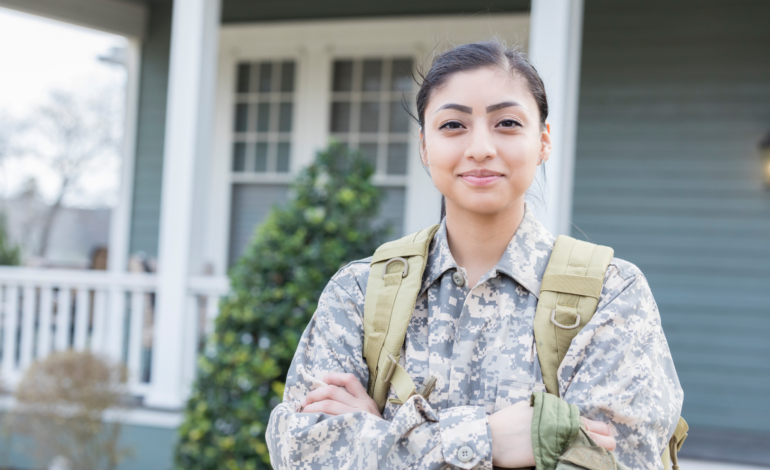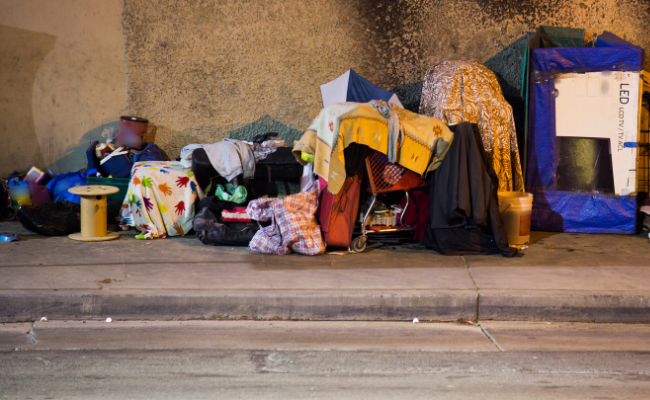
By Niurka Castaneda
For generations, women have stood alongside their male counterparts, displaying exceptional courage in military service, defending their country with unwavering dedication. From the Civil War to modern conflicts, women like Harriet Tubman, Mary Walker, and Deborah Sampson have made extraordinary contributions, yet their stories are often overshadowed.
Invisible Warriors, Ignored Stories:
Despite being forbidden, over 400 women disguised themselves as soldiers during the Civil War, laying the foundation for a legacy of resilience. Their roles expanded during World Wars I and II, with thousands serving as nurses, aides, pilots, cryptography and parachute rigging and in military intelligence. Recognition of their service came slowly, culminating in the 1948 Women’s Armed Services Integration Act.
In today’s veteran community, women make up 10% of the total population. Imagine being in a room filled with veterans, where only the male heroes receive acknowledgment. These women frequently share heartbreaking stories of being overlooked, their service dismissed as if it holds lesser value simply because of their gender. People often assume they are not the veterans in their households, leading to feelings of frustration, anger, and a lack of appreciation.
Even within VA hospitals, these women must justify their service continually, facing insensitivity and lack of acknowledgment. Campaigns like The I Am Not Invisible (IANI) by the Center for Women Veterans (CWV) or the Amor Umbrella Women Veteran initiative aims to bring awareness to the unique challenges they face in order to change the narrative.
Other organizations like Women Vet USA, WOVEN, or initiatives like Ms. Veteran American aims to connect women veteran across the nation to resources and enhance public awareness of their sacrifice and their service in both peacetime and combat situations, putting a face to these women that have served, often risking not coming back to their families.
Navigating life after military service is challenging, especially for those who must balance between their duties and parenting responsibilities. Transitioning to civilian life means grappling with the complexities of finding stable employment while ensuring the well-being of their families. The demands of a career, raising children, and potential financial constraints create overwhelming pressures.
For single mother veterans, financial stability becomes a significant hurdle during this transition, particularly without the support of a partner. The absence of a second income leads to substantial financial stress, impacting housing, education, and healthcare choices for both the veteran and her children. Accessible and affordable childcare, emotional support networks, and mentorship programs tailored for single mothers are often scarce, leaving them to face their challenges largely alone in their local communities. Securing education and job opportunities that align with their military skills while meeting the demands of parenting can be daunting.
While mentorship programs like ACP and Veterati seek to alleviate these challenges, more needs to be done to provide affordable housing, comprehensive childcare options, specialized career counseling to address these issues effectively..
The lack of access to appropriate support systems exacerbates the challenges faced by female veterans, especially single mothers. Existing social, governmental, and nonprofit programs often fail to cater to the specific needs of veterans, leaving them at risk of homelessness. Even established initiatives like the Veterans Affairs Supportive Housing (HUD-VASH) predominantly benefit male veterans, overlooking the fastest-growing segment of homeless veterans: women, particularly those without a history of substance abuse or prostitution.
Studies reveal that most women veterans exhaust all alternative options before seeking shelter, frequently relying on family, friends, or resorting to hidden homelessness, such as sleeping in cars or couch surfing. The reluctance to seek official help stems from the fear of authorities separating them from their children, intensifying their challenges.
Facing the challenges, there are many hurdles to overcome

Escaping abusive situations makes their plight even more severe. Homeless shelters often lack the essential support and space for these women and their children, a deficiency driven by both limited space and insufficient funding. This scarcity exacerbates the cycle of abandonment, leaving these brave individuals to face their struggles alone or, tragically, forcing them to endure abusive situations due to the lack of viable alternatives. Their initial recourse should be reaching out to hotline to discover available resources.
To compound their challenges, a shocking one-third of these women report incidents of sexual harassment within the VA, reminding them of the military sexual trauma (MST) they endured during their service. MST leaves profound psychological scars, leading to symptoms of PTSD, such as reliving the traumatic event or avoiding reminders of it.
Too Many on the Streets

Despite these challenges, many women veterans find empowerment through entrepreneurship. Armed with their military training, they venture into diverse sectors, such as technology, healthcare, arts, and education. Entrepreneurship not only provides financial independence but also allows them to channel their leadership skills into innovative ventures, making a significant impact on society.
Finding Power through Entrepreneurship
During their transition, they exhibit remarkable resilience, determination, and the strength to overcome multifaceted challenges. Recognizing the unique struggles they face is the first step toward empowering them. By leveraging the diverse resources available—from financial assistance and education support to healthcare services and community networks—we can create a supportive ecosystem where here these women thrive.
Acknowledging the struggles faced by women veterans is not just a moral obligation but a societal necessity. Empowering them necessitates tailored programs, comprehensive support systems, and accessible resources. There is a pressing need for increased efforts to give voice to this diverse group of women. Representation is crucial, both in public service, where the current representation stands at a mere 1%, and in leadership positions across our society.
It’s noteworthy that Congress has never seen a Black, Latina, or Native American woman veteran elected. By pooling efforts from organizations, communities, and governments, we can bridge this gap, ensuring that these invisible heroes are no longer overlooked. We must honor their sacrifices by providing the recognition, support, and opportunities they rightfully deserve. It’s time to rewrite the narrative and bestow upon these remarkable women the acknowledgment they have unquestionably earned.



